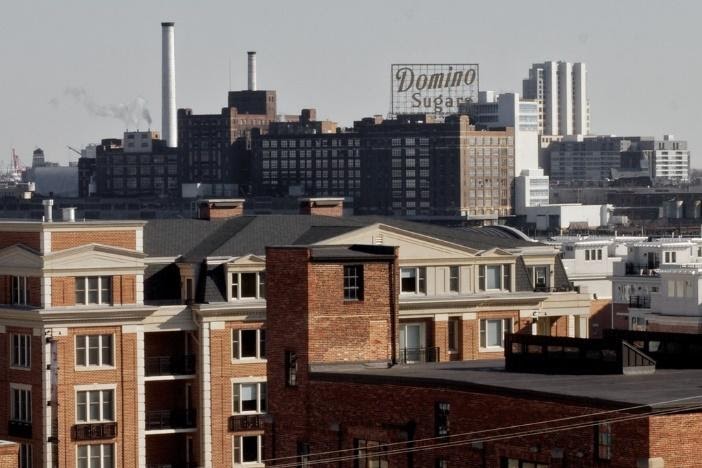
Baltimore After Progress
How do people in postindustrial landscapes relate to the future once trajectories like progress reveal themselves to be untenable? What might their experiments in hoping at the end of things teach us about dreaming big in the face of ecological apocalypse? This two-part event takes up these questions from the vantage point of South Baltimore City, following debates among neighbors over a proposed incinerator. Some worried the plant would solidify their neighborhood’s position as a “dumping ground,” while others thought it might revive them from an economic slump. For a time, the proposal laid bare categorical disagreements about what residents could reasonably desire from within the haze kicked up by an aging industrial order. Exploring two takes on the notion of what constitutes a “reasonable desire” and the future orientations that structure each, I consider both the imaginative limits to achieving something like a just transition (Part I) and the hard work it takes to stretch the boundaries of the possible (Part II).
Lecture, “Baltimore After Progress, Part I: A Cautionary Tale”
Thursday, Feb. 24th @ 4:30 p.m.
Part I unfolds a cautionary tale about the lure of techno-fixes by examining why some considered the incinerator to be a “renewable” technology. Renewal is a hybrid temporality—both cyclical (“re”) and linear (“new”)—bent on giving fresh life to old things. In this way, it embeds a redemptive dream: a yearning to return to a time before the ruination wrought by progress. This lecture considers attachments to renewal held by technocrats and white South Baltimoreans alike. In recounting how both groups called on the acutely toxic past to figure the incinerator as the best among a set of lousy choices, I show that renewal sets up a political terrain that limits aspiration to the plausible.
Seminar, “Baltimore After Progress, Part II: Not How the Story Ends”
Friday, Feb. 25th @ noon
Then, in Part II, I turn to a youth-led campaign to block the construction of this plant. I show how this group used the incinerator as an opening into two centuries of local history and the fight against it as an opportunity to practice “prefigurative” politics. Prefigurative politics proceed from the premise that there is no meaningful difference between one’s struggle in the present and goal in the future. Instead, time collapses into a praxis where the ends and means are effectively contemporaneous. In this way, the fight against the incinerator becomes sensible as a way to speak radical hope into existence based on lessons learned from five generations of exposure to harm.

Chloe Ahmann is an assistant professor at Cornell University. She is an environmental anthropologist studying the long afterlife of American industry. Her work is based in Baltimore, where she follows industrialism’s enduring traces in toxified landscapes, patchy regulation, quotidian expressions of white supremacy, and particular orientations toward time. She is especially interested in what kinds of environmental futures take form amid these legacies.
